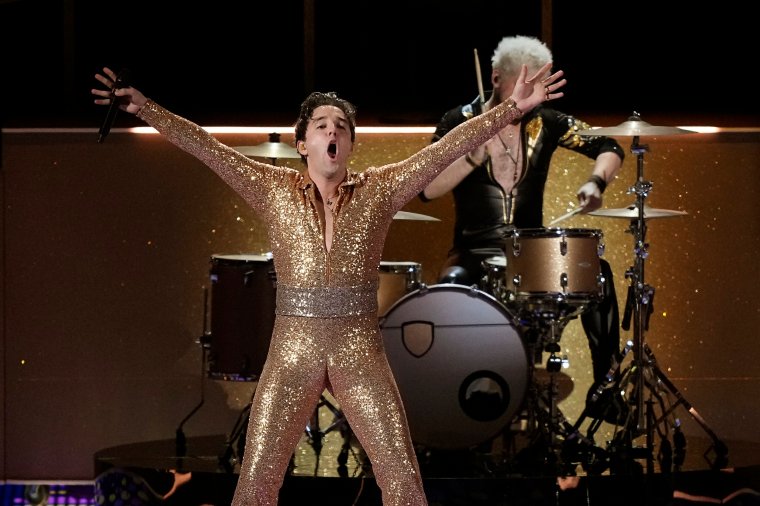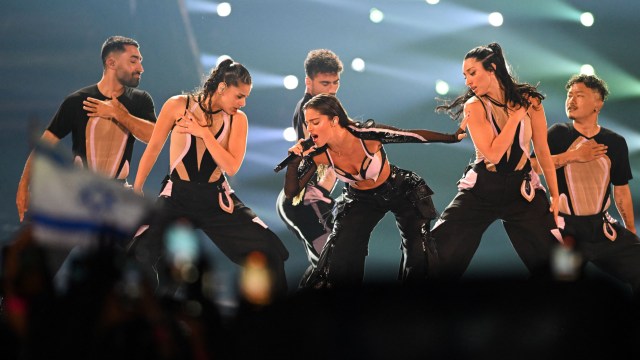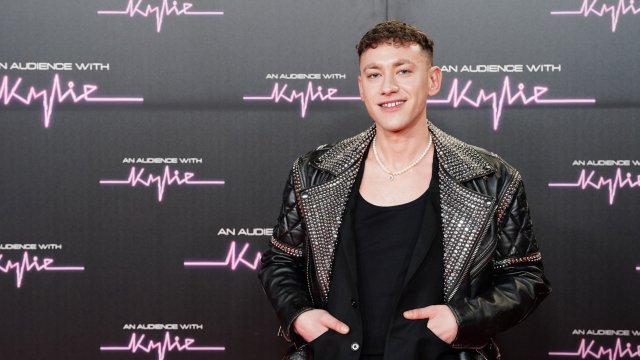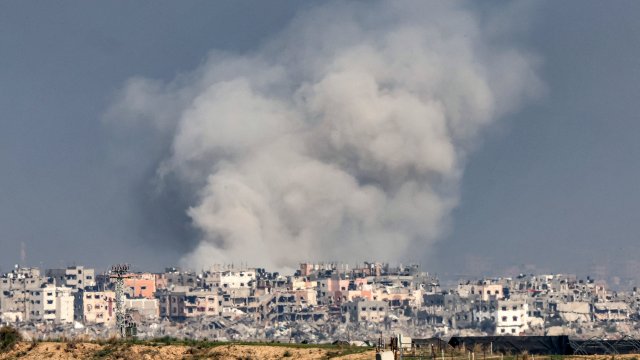With no end in sight to the Israel-Gaza war, there are growing calls for the country to be expelled from the Eurovision Song Contest. A musicians organisation in Iceland has urged the European Broadcasting Union (EBU) to eject Israel from the competition, which it has won on four occasions.
“We all have a duty to take a stand against war and the killing of civilians and innocent children,” said Iceland’s Association of Composers and Lyricists of Iceland (FTT), which said it opposed Iceland’s participation in the finals in Malmö in May 2024 unless Israel was disqualified. “We always have the choice not to put our name to such things, whether we are individuals or state institutions.”
Those sentiments are echoed by a prominent politician in Ireland, who urged the country to boycott Eurovision in the event of Israel’s participation. “This small symbolic step from Ireland would, I think, encourage others to follow the same route,” said the Labour Party’s Aodhán Ó Ríordáin.
“If Eurovision doesn’t happen because of Israel’s participation then so be it. I think in years to come when the history of this conflict is being written, we want a little asterisk beside our name as a country that was different. You have a situation with the Eurovision contest where Israel will be invited in to wave their flags in a joyful way on that huge platform,” he said.
There is speculation, too, that Finland’s national broadcaster may be considering withdrawing. The organiser of that country’s national song contest has said it was “closely following” the situation in Gaza. It added that it was “in discussions with the EBU and other Nordic countries”.
Demands for Israel to be expelled have been rejected by the EBU, which organises the event. “The Eurovision Song Contest is a competition for public service broadcasters from across Europe and the Middle East. It is a competition for broadcasters – not governments – and the Israeli public broadcaster has participated in the contest for 50 years,” it said. “The Eurovision Song Contest remains a non-political event that unites audiences worldwide through music.”
Some may quibble with the argument that the EBU is “non-political”. It expelled Russia from both the EBU and Eurovision following Vladimir Putin’s invasion of Ukraine. The organisation initially said it had no plans to prevent Russia from participating. However, it quickly backtracked. After “widely” consulting its members, it said it had decided to eject Russia based on “a recommendation… by the Eurovision Song Contest’s governing body”.

Nor was that the first time a country was shown the door from Eurovision. In 2005, Lebanon was due to make its Eurovision debut. But it was effectively booted out because the state broadcaster refused to air Israel’s entry, which violated EBU rules. Lebanon was handed a three-year ban – and has never returned.
In 2021, the EBU vetoed the Belarus band Galasy ZMesta because its song “Ya nauchu tebya” (I’ll Teach You) was perceived as supporting authoritarian leader Alexander Lukashenko amid pro-democracy protests. The musicians submitted another song, which was also regarded as political. The EBU suspended Belarus and later expelled the country.
A decade previously, Georgia had similarly come into conflict with the EBU over the entry “We Don’t Wanna Put In” by Stephanie & 3G. The chorus, “We don’t wanna put in”, was interpreted as a reference to Vladimir Putin. Georgia refused to submit an alternative entry and was disqualified.
The Israel-Palestine conflict has also cast a shadow over the contest. Three years ago, Iceland techno-punk band Hatari was warned not to express on stage its opposition to Israel’s occupation of Gaza. The band followed that instruction during its performance. But members held up a Palestine flag in the green room. Iceland’s national broadcaster was fined €5,000.
Eurovision is an all-conquering juggernaut. None of those previous controversies have prevented the show from rumbling ever onwards. There is a feeling, though, that Gaza is different, with at least 20,000 Palestinians estimated to have been killed during 10 weeks of Israeli bombardment.
The pressure the EBU came under after Russia’s invasion of Ukraine was intense. In the end it buckled. No two conflicts are the same, of course. And, obviously, Eurovision could continue without Iceland, Finland and Ireland. But if those countries were to formally threaten a boycott and others followed, the EBU could come under renewed pressure.
It will also want to consider the optics of Israel performing in Malmö. There is every possibility the song would be drowned by a chorus of boos. Some six months from the final in Sweden, the debate over Israel’s participation has surely only just begun.


